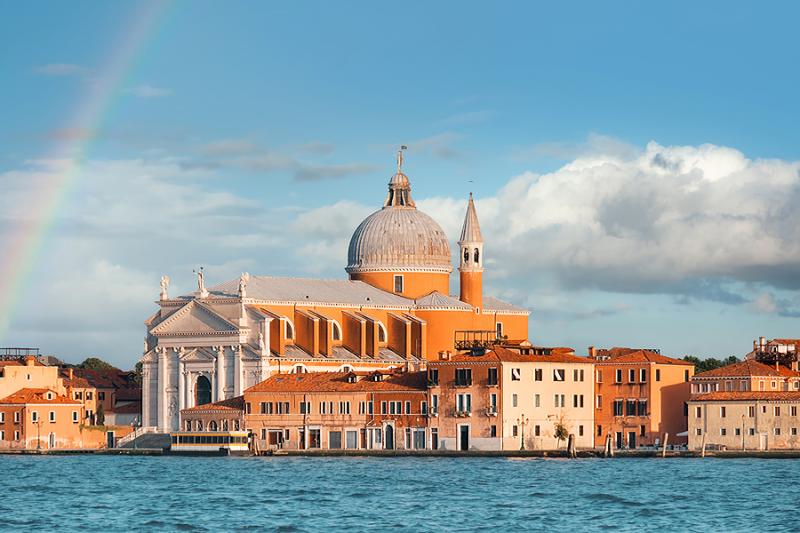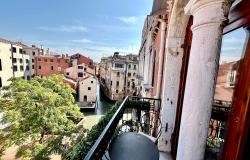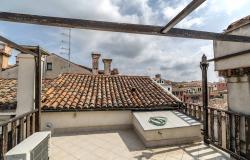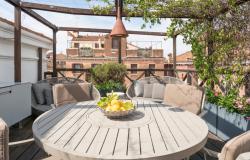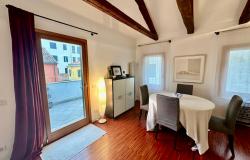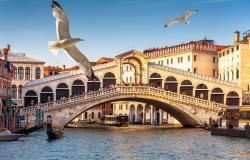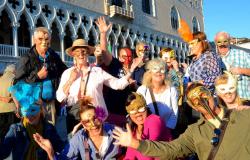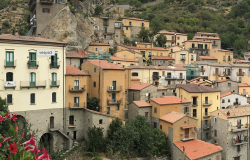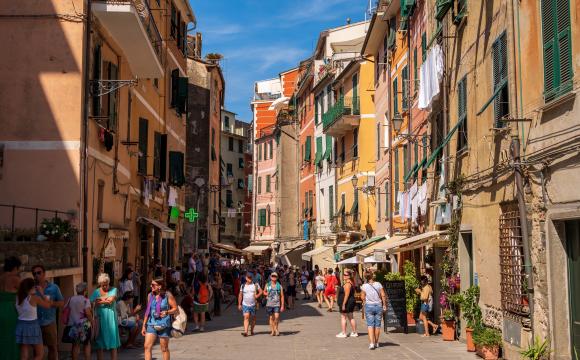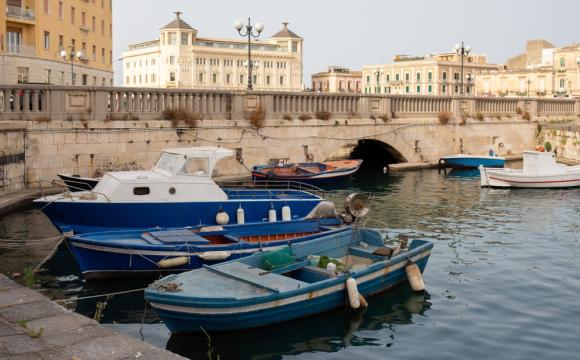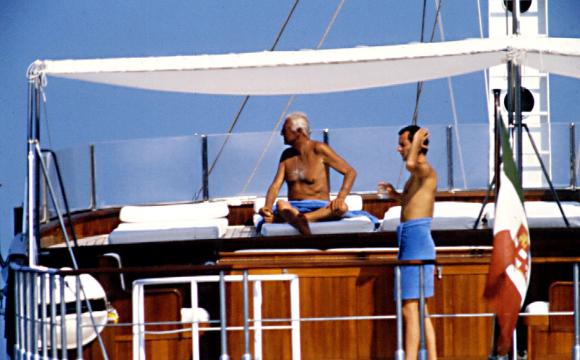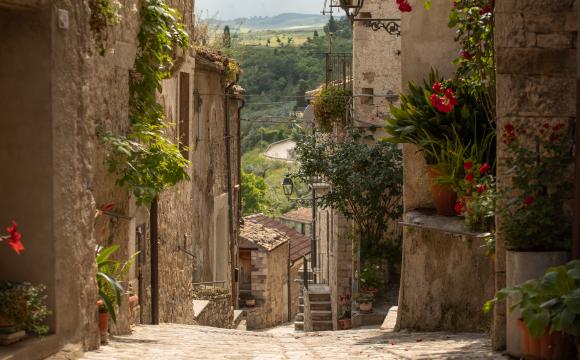The best way to learn what life is really like in a certain place is to listen to the people who live in the place, sharing their experiences and feelings; thanks to the book ‘Venice Rising - Aqua Granda, Pandemic, Rebirth,’ a collection of essays written by Venetians and Venice residents, we can better understand what has happened and what is happening in the lagoon city following two events that have had a major impact on the city, its economy and its citizens: the November 2019 floods and the 2020 months-long lockdown brought about by the Covid-19 health emergency.
“While I originally thought that the stories might be depressing or distressing, I found that the authors responded with stories of love, hope, and fortitude to make Venice Rising an inspiring book,” says the book’s editor Kathleen Gonzalez, author of First Spritz Is Free: Confessions of Venice Addicts. “Many of the authors here are also traditional craftspeople or Venetian business owners themselves, and we hope that their stories inspire readers to learn more about Venice's unique arts and crafts to support a renaissance.”
Gonzalez was inspired to take on this project by one of her readers, U.K. resident Rosemary Wilmot, who helped her reach out to people in Venice willing to share their stories.
We asked Gonzalez to tell us more about Venice Rising and what the future of Venice looks like.
- Why did you want to publish this book?
Though people around the world are experiencing similar hardships due to the Covid-19 pandemic, Venice experienced a double disaster by going into lockdown so soon after the devastating aqua granda. I wanted to capture and preserve Venetian voices as witnesses to these events and also to highlight Venice's fragile nature for the rest of the world. My hope was that, by revealing what Venetians went through and the damage caused to the city, we might be able to create a more sustainable future. Donating all proceeds from the book also allows me to give back to the city and its people.
- Can you describe your relationship with Venice?
I instantly fell in love with Venice within the first five minutes of arriving there in 1996, on a trip with students. Since then, I have returned to the city annually, and I read and write about Venice and Venetians in order to connect more with the city. I have written about the gondoliers, Venice's famous son Giacomo Casanova, and a variety of Venetian women. I love strolling the city to get to know its treasures, and I have become friends with a number of Venetians over the years. This makes me want to contribute to preserving Venice's unique habitat, culture, and arts. I never tire of learning more about Venice and spending time in her calli e canali.

[Kathleen Gonzalez, editor of Venice Rising.]
- What are the reasons for concern that most contributors in the book share about the future of the city?
A few key issues surface repeatedly for the people contributing to this book. Overtourism is a big factor in pushing the city past limits of sustainability; the excessive crowds bring pollution and trash to the city without offsetting that damage with sustainable revenues for businesses. Cruise ships damage not only the waterways and air but also the very buildings themselves with the corrosive chemicals and rumbling motors that literally demolish stone. Venetians see their way of life disappearing as locals often cannot afford to live in the city where buildings are being bought by foreigners. Contributors to Venice Rising dearly love their city's history and culture, including artisan skills like bookbinding, bead making, glassblowing, local foods and wines, gondolas, antiques, and so on, and they want to protect this patrimony before it disappears.
- What are some of the most interesting ideas/proposals that emerged from the contributors for sustainable travel in Venice?
The very first chapter of the book comes from Elena Almansi, a rowing instructor with Row Venice, a woman-led company that encourages and preserves traditional Venetian rowing techniques. Utilizing traditional rowboats rather than motorboats will decrease damage to the foundations as well as preserve Venetian culture. Many contributors suggested that visitors to Venice should patronize home-grown companies like this as well as shopping at the traditional artisan shops; the book features chapters by bookbinder Paolo Olbi, paper maker Fernando Masone, Elena Grassi Orsoni, poet and the widow of a mosaicist, as well as a gondolier and the owner of an antique shop. Furthermore, when tourists rent from local Venetians, then this income stays in the city rather than going to foreign companies. Artist Manuel Carrión suggests that people need to reconnect with their neighbors and parrocchie (parishes), finding the individual strengths of those there and promoting those strengths to visitors.
- How do you think tourism in Venice will change when international travel can resume normally? Are you optimistic and why or why not?
We are all hopeful that cruise ships will no longer be allowed to dock so close to Venice itself, and that this change might also encourage visitors to stay longer than just a few hours. Vera Brunello also suggested that visitors arrive with reservations so that the influx of people is more regulated. The aqua granda made it clear that our climate is changing and that Venice will perish if the old ways continue, and Venetians are working assiduously to find ways to reimagine and revitalize their city, bringing in more residents, artists, creators, students, and tech workers who can work online from home. This outpouring of love and care for Venice must bring change, and I am optimistic that it will overcome the bureaucracy that has held back change for so long.

- All proceeds from the sale of ‘Venice Rising’ will be donated to three organizations that support Venetian culture, arts, and architecture: We are here Venice, No Grandi Navi, and Venice Calls. Why did you pick these three specific organizations to be the recipients of the proceeds from the book?
With my last book, First Spritz Is Free, I donated proceeds to Save Venice, Venice in Peril, and No Grandi Navi, which specifically fights against the overtourism damage caused by the cruise ship industry. It made sense to continue to donate to No Grandi Navi, which addresses a key issue that relates to the historic aqua granda that features in these chapters. Furthermore, Rosemary Wilmot knows Jane Da Mosto, Executive Director of We are here Venice, and invited her to contribute to Venice Rising; her team shared their work on environmental protectionism in Venice, and sharing the book's profits will help them continue their work. Rosemary also introduced me to Venice Calls, which heads numerous local initiatives to preserve and protect the city and its inhabitants, from graffiti abatement, to food delivery, to shoreline clean up, to exploring traditional rowing to replace motorboats. All three organizations are grassroots and homegrown, led by Venetians themselves, which felt like the right direction to go in for a book that focuses on Venetians and not just Venice.
- Anything you'd like to add?
During the pandemic, Elena Almansi and other rowers found that they could row as fast or faster than motorboats but with no pollution to the environment. Since spring, people are looking into diminishing the role of motorboats in favor of rowing; Venice Calls just held a symposium on this topic, and it would be very exciting to see a change like this. Iris Loredana, a blogger, historian, and food writer on Venice, proposed that the government, residents, and other associations must find a way to collaborate and find a balance between tourist crowds and an empty city and that they also must solve the problem of the city flooding. (Many people are rejoicing that Mose has finally been successfully implemented.) Numerous writers shared their enthusiasm for bringing back traditional Venetian arts as a way to entice young people to stay in the city, along with encouraging more educational opportunities and student housing within Venice itself. For artisans and local businesses to survive this pandemic, people must support those businesses now until visitors return to the city. Another common theme was to re-engage Venetians and bring them together to reinvent their city together.
- Thank you, Kathleen, for answering our questions.
For more information about and to purchase Venice Rising, visit the book's dedicated website.
